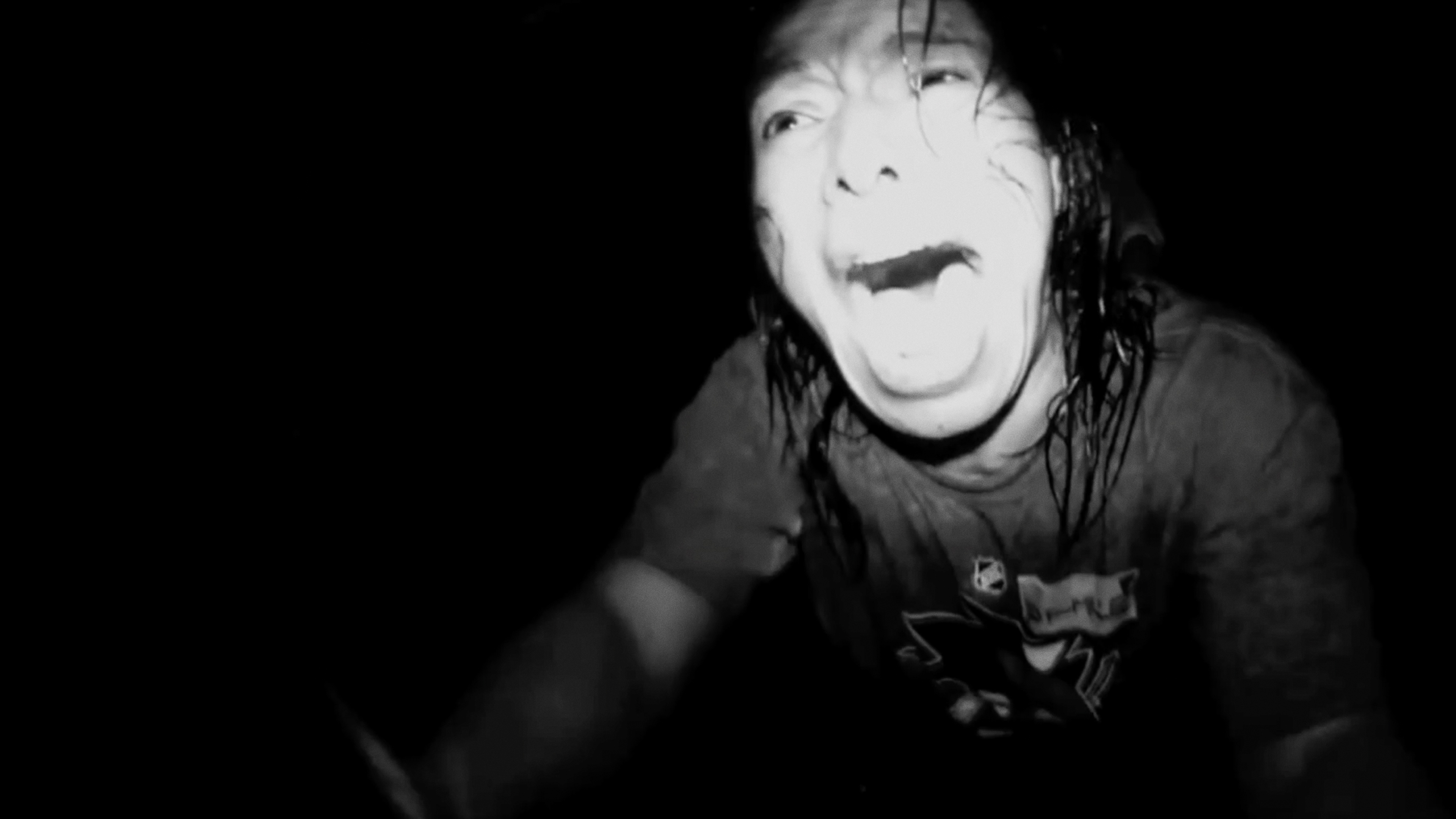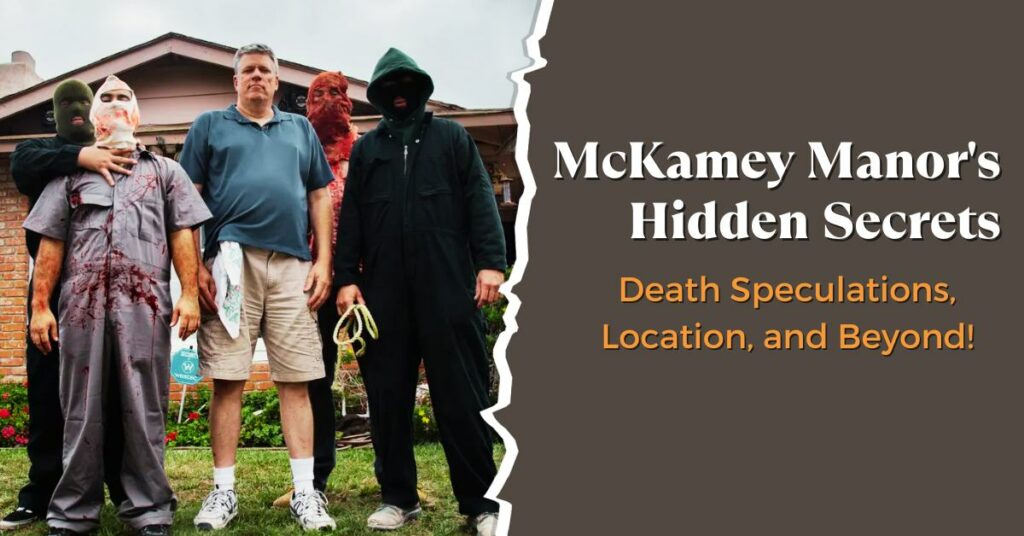There’s no denying that McKamey Manor was one of the most talked-about attractions in the horror community. This Texas-based haunted house was more than just a thrill ride—it was an experience that pushed the boundaries of fear. But why did McKamey Manor close? The answer isn’t as simple as you might think. In this article, we’ll dive deep into the reasons behind its closure and explore the impact it had on both fans and the haunted attraction industry.
Let’s be real for a sec. McKamey Manor wasn’t your typical haunted house. It was known for its extreme simulations, immersive environments, and—let’s not forget—the strict rules that made it feel like stepping into a horror movie. People were willing to pay top dollar and sign waivers just to experience the fear. But behind all the hype, there were some serious challenges that eventually led to its shutdown.
Before we get into the nitty-gritty, let’s set the stage. McKamey Manor wasn’t just a place; it was a phenomenon. Fans from all over the world traveled to Texas to test their limits and face their deepest fears. But with great power comes great responsibility, and in this case, the responsibility was too much for the manor to handle. So, buckle up, because we’re about to break it all down.
Table of Contents
- The History of McKamey Manor
- Why McKamey Manor Closed
- Legal Issues Surrounding McKamey Manor
- Ethical Debates and Public Opinion
- Fan Reactions to the Closure
- Impact on the Haunted Attraction Industry
- Future Plans for McKamey Manor
- Alternatives to McKamey Manor
- Frequently Asked Questions
- Final Thoughts on McKamey Manor Closed
The History of McKamey Manor
McKamey Manor started as a dream. Founded by John McKamey, the manor quickly gained a reputation for being one of the most intense haunted attractions in the world. Unlike traditional haunted houses, McKamey Manor offered a fully immersive experience that lasted for hours. Participants were subjected to psychological and physical challenges designed to test their limits. It wasn’t for the faint of heart, and that’s what made it so appealing.
But here’s the kicker—this wasn’t just a random haunted house. McKamey Manor was meticulously crafted to simulate real-life horror scenarios. From escape rooms to intense actor interactions, every detail was carefully planned to create an unforgettable experience. And let’s not forget the infamous “rules” that participants had to follow. No screaming, no running, and absolutely no resistance. Breaking the rules meant immediate ejection from the experience.
How McKamey Manor Revolutionized the Haunted Attraction Industry
McKamey Manor wasn’t just a haunted house; it was a game-changer. By pushing the boundaries of what a haunted attraction could be, it inspired a new wave of immersive experiences. Other haunted houses began to incorporate similar elements, such as actor interactions and escape room-style puzzles. But none could replicate the sheer intensity of McKamey Manor.
It’s worth noting that the manor’s success wasn’t just about fear—it was about storytelling. Every room, every actor, and every detail was part of a larger narrative that kept participants engaged from start to finish. This level of attention to detail is what set McKamey Manor apart from the rest.
Why McKamey Manor Closed
Now, let’s get to the heart of the matter. Why did McKamey Manor close? The short answer is that it was a combination of factors, including legal issues, financial challenges, and public backlash. But let’s break it down a bit further.
- Legal Issues: McKamey Manor faced several lawsuits over the years, primarily related to safety concerns and participant injuries.
- Financial Struggles: Running an attraction like McKamey Manor isn’t cheap. The high cost of maintaining the facility, hiring actors, and implementing safety measures eventually took its toll.
- Public Backlash: As the manor gained more attention, it also attracted criticism from those who felt the experience was too extreme and potentially harmful.
It’s important to note that these factors didn’t happen overnight. They built up over time, eventually leading to the decision to shut down the attraction.
Breaking Down the Legal Issues
Legal issues played a significant role in the closure of McKamey Manor. Participants were required to sign extensive waivers before entering the attraction, but that didn’t stop some from filing lawsuits. Claims of physical and psychological harm were common, and while many of these cases were dismissed, the constant legal battles took a toll on the manor’s resources.
One of the most notable cases involved a participant who claimed they were injured during the experience. While the manor maintained that all safety protocols were followed, the lawsuit highlighted the risks associated with such an extreme attraction.
Legal Issues Surrounding McKamey Manor
Let’s talk about the elephant in the room—legal issues. McKamey Manor faced numerous lawsuits over the years, and while many of them were dismissed, they still had a significant impact on the attraction’s operations. The manor’s strict rules and waivers were designed to protect both participants and the facility, but they weren’t foolproof.
Here are some of the key legal challenges McKamey Manor faced:
- Safety Concerns: Participants claimed that the manor’s simulations were too intense and led to injuries.
- Waiver Disputes: Some participants argued that the waivers they signed were unclear or misleading.
- Psychological Impact: A few lawsuits focused on the psychological effects of the experience, claiming it caused long-term trauma.
While the manor’s legal team was able to defend against most of these claims, the constant litigation was a drain on resources and reputation.
Ethical Debates and Public Opinion
McKamey Manor wasn’t just a haunted house; it was a lightning rod for ethical debates. Critics argued that the attraction went too far in its pursuit of fear, potentially causing harm to participants. On the other hand, supporters praised the manor for pushing the boundaries of entertainment and providing a unique experience.
Public opinion was divided. Some saw McKamey Manor as a groundbreaking attraction that redefined what a haunted house could be. Others viewed it as a dangerous and exploitative experience that prioritized profit over safety.
The Ethics of Extreme Entertainment
At its core, the debate surrounding McKamey Manor boils down to one question: How far is too far when it comes to entertainment? The manor’s simulations were designed to be as realistic as possible, but that realism came at a cost. Participants were subjected to intense psychological and physical challenges that some found too much to handle.
While the manor’s creators maintained that all safety protocols were followed, the ethical implications of pushing participants to their limits can’t be ignored. It’s a fine line between providing an immersive experience and causing harm, and McKamey Manor often found itself straddling that line.
Fan Reactions to the Closure
When the news of McKamey Manor’s closure broke, fans were devastated. For many, the manor wasn’t just a haunted house—it was a bucket-list experience. The closure meant the end of an era, and fans were left wondering what the future held for extreme haunted attractions.
Here’s what some fans had to say:
- “It was the most intense experience of my life. I can’t believe it’s gone.”
- “I understand the legal issues, but it’s sad to see something so unique disappear.”
- “I hope they find a way to bring it back. There’s nothing else like it.”
While the closure was met with disappointment, some fans expressed hope that the manor could be revived in some form in the future.
Impact on the Haunted Attraction Industry
McKamey Manor’s closure had a ripple effect on the haunted attraction industry. Other attractions began to reevaluate their own operations, particularly in terms of safety and liability. The manor’s experience served as a cautionary tale for those looking to push the boundaries of fear.
However, it also inspired a new wave of immersive attractions that sought to capture the essence of McKamey Manor without crossing the same legal and ethical lines. These attractions focused on creating intense experiences while prioritizing participant safety and well-being.
Lessons Learned from McKamey Manor
The closure of McKamey Manor taught the industry several valuable lessons:
- Safety First: No matter how immersive the experience, participant safety must always be the top priority.
- Transparency: Clear communication and transparency with participants can help avoid misunderstandings and legal disputes.
- Boundaries: Pushing the boundaries of fear is exciting, but knowing where to draw the line is crucial.
These lessons continue to shape the haunted attraction industry today.
Future Plans for McKamey Manor
So, what’s next for McKamey Manor? While the attraction is currently closed, there’s still hope for a comeback. John McKamey has expressed interest in reviving the manor in a new location, with updated safety measures and a revised format that addresses some of the issues that led to its closure.
Here are some potential changes we might see:
- New Location: A fresh start in a different location could help the manor rebuild its reputation.
- Enhanced Safety Protocols: Stricter safety measures and clearer communication with participants could reduce the risk of legal issues.
- Modified Experience: A revised format that tones down some of the more extreme elements could make the attraction more accessible to a wider audience.
Only time will tell if McKamey Manor will rise again, but fans are hopeful for a second chance.
Alternatives to McKamey Manor
For those who still crave an intense haunted house experience, there are several alternatives to McKamey Manor. While none can fully replicate the manor’s unique blend of fear and immersion, these attractions offer their own brand of thrills:
- Netherworld Haunted House: Located in Atlanta, Georgia, Netherworld is known for its elaborate sets and talented actors.
- The 17th Door: Based in Los Angeles, California, The 17th Door offers a terrifying escape room experience that will leave you on edge.
- ScareHouse: Pittsburgh’s ScareHouse is consistently ranked as one of the scariest haunted attractions in the world.
While these attractions may not be as extreme as McKamey Manor, they still provide a memorable and terrifying experience.
Frequently Asked Questions
Here are some common questions about McKamey Manor:
- Why did McKamey Manor close? The closure was due to a combination of legal issues, financial challenges, and public backlash.
- Will McKamey Manor reopen? There are plans to revive the attraction in a new location with updated safety measures.
- What made McKamey Manor so unique? Its extreme simulations, immersive environments, and strict rules set it apart from other haunted attractions.
If you have more questions, feel free to leave a comment below!
Final Thoughts on McKamey Manor Closed
McKamey Manor may be closed for now, but its legacy lives on. It pushed the boundaries of what a haunted attraction could be and inspired a new generation of immersive experiences. While its closure was a blow to fans and the industry alike, it also served as a valuable lesson about the importance of safety, transparency, and ethical responsibility.
So, what’s next? Only time will tell if McKamey Manor will rise again, but one thing is for sure—the haunted attraction industry will never be the same. If you’re a fan of extreme haunted houses, keep your eyes


